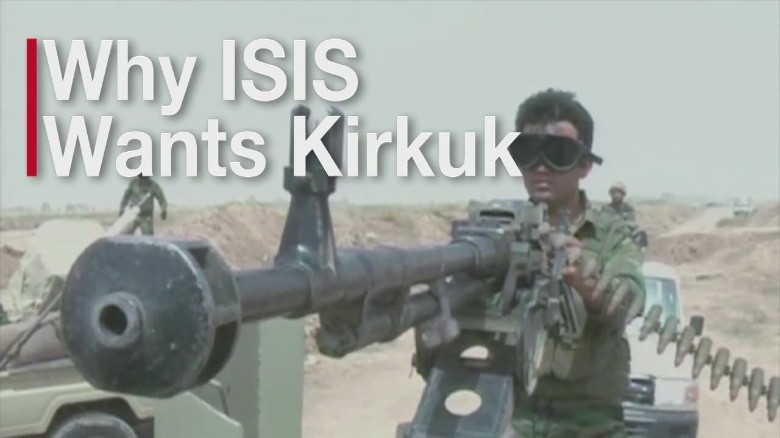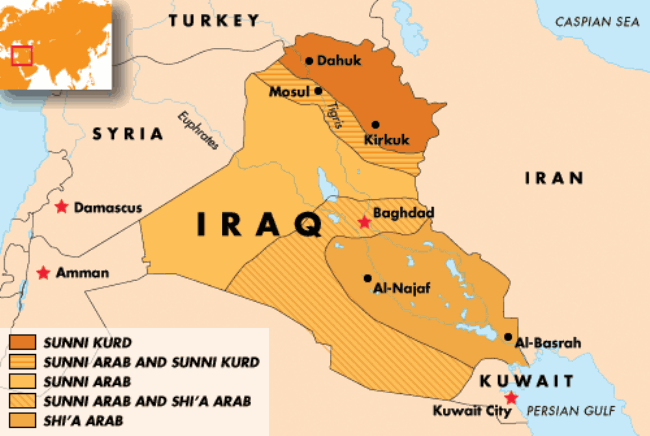
ISIS in Kirkuk: What’s Happening and What it Means
What’s happening
Recent ISIS losses in Kirkuk Province in Iraq have been the latest blow in a series of major hits to the group, including their loss of their major stronghold of Mosul. These losses represent a total decimation of the group’s strength: at its peak, the group controlled a third of Iraq, and yet it’s now relegated to mainly rural areas and small cities [1]. The attack itself was captioned by the retaking of Hawija, the most prominent city in the region.
The attack was carried out by a combination of U.S.-backed Iraqi forces and Iranian-backed Shia militias, which forced the remaining ISIS forces to fall back to isolated villages along the Syrian border [2]. The exact makeup of the group is controversial, with Iran-backed forces holding serious sway over even U.S. trained Iraqi units [3]. Regardless of the makeup of the unit, they were effective in removing the last major ISIS stronghold in northern Iraq, removing an important strategic asset for the so-called Caliphate.
The Future
The fight against ISIS is likely to morph into much more asymmetric and drawn-out warfare now that the group holds no urban centers. Urban areas not only offered ISIS units the space to train and plan attacks but also offered the population needed for to maintain the group’s recruitment and resources. Instead, Iraqi forces are now faced with clearing the vast deserts of Anbar Province complemented with a porous Syrian border [4].

While this seems daunting, Iraqi forces have confronted similar arenas in the fight so far: in the days leading up to the assault on Hawija, forces retook 25 small villages throughout Kirkuk Province while preparing to retake Hawija [5].Indeed, Kirkuk had already been experiencing mainly terror tactics such as IED and hit and run style attacks rather than full-on battles [6].
However, the relegation of the remainder of ISIS soldiers to this frontier may intensify this form of conflict. Especially given the difficulty of maintaining consistent control over desert territory as well as tracking groups in the absence of strong infrastructure, this last leg of the conflict would be quite protracted.
Perhaps the most unsettling prospect of the decline of ISIS is the inevitable reintroduction of the social and political crises that generated space for ISIS to grow. The emerging crisis with Kurdish independence, new worries over Sunni-Shi’a tensions as a result of Iranian involvement in the conflict, spillover from the Syrian civil war, and the huge task of postwar reconstruction could all contribute to new security challenges if not planned for proactively [7].
Indeed, the governor of Kirkuk noted the legacy of anti-system political violence stemming from the region, spanning al-Qaeda to the hypothetical groups to come [8]. And while it may seem arrogant to begin postwar planning, it was the same short-term planning strategies that have failed the United States time and time again in protracted wars around the globe. Unless the U.S. wishes to be back in Iraq in another 5 years, the need for comprehensive postwar planning should be done soon.

[1] http://www.cbc.ca/news/world/fighting-in-kirkuk-threatens-u-s-canadian-efforts-to-defeat-isis-1.4357964
[2] https://www.theguardian.com/world/2017/oct/05/iraqi-army-claims-recapture-islamic-state-isis-held-areas-hawija
[3] http://foreignpolicy.com/2017/10/16/if-trump-wants-to-confront-iran-he-should-start-in-kirkuk/
[4] https://www.haaretz.com/middle-east-news/isis/1.817709
[5] https://www.albawaba.com/news/iraqi-forces-recapture-25-kirkuk-villages-isis-1028378
[6] http://www.rudaw.net/english/analysis/19092017
[7] https://www.irishtimes.com/opinion/editorial/islamic-state-collapse-on-the-battlefield-1.3255019
[8] http://www.rudaw.net/english/analysis/19092017
[9] Wikimedia Commons
